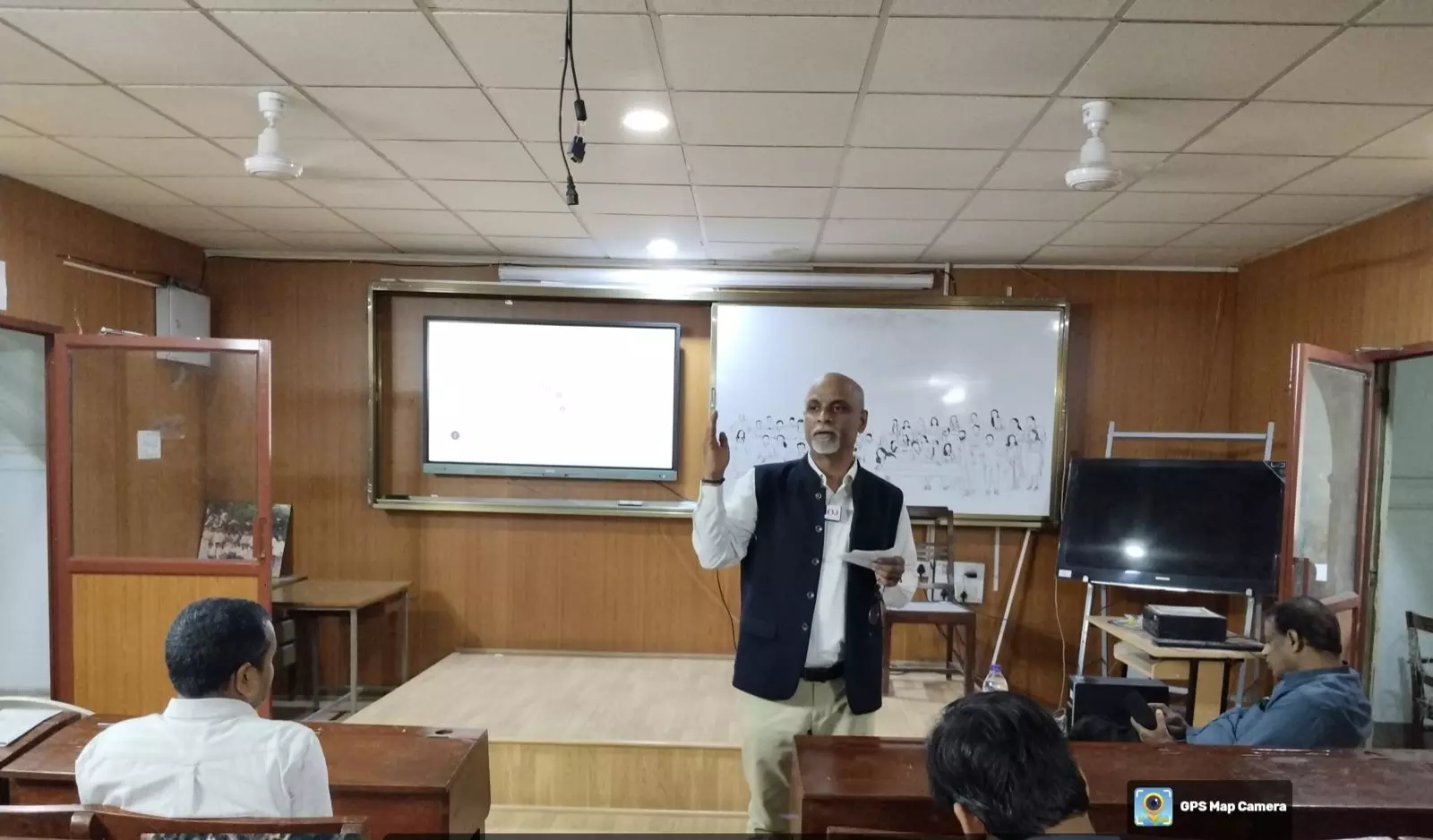Lecture on Political PR Held at OU
The discussion also touched on the challenges facing traditional journalism, with many media professionals transitioning to political PR. Yet, the ethical dilemma remains—when PR prioritises perception over policy, does democracy become the real casualty? The audience was left pondering this question.

Hyderabad: Political public relations (political PR) has become an essential tool for modern campaigns, but its growing influence raises troubling questions, including its potential to fuel corruption, said Dr S. Ramu, a journalist, media educator and PR expert. He was speaking at a lecture on “Political PR – Challenges and Opportunities,” organised by Osmania University’s department of communication and journalism on Friday. His talk explored the evolving role of political PR and its impact on governance.
Dr Ramu outlined the three key phases of political PR—before, during and after elections—highlighting how image-building, media management and crisis control have become indispensable in politics. Before elections, PR teams craft a leader’s persona and shape public perception. “During elections, their role intensifies, managing media narratives, controlling damage and orchestrating rallies. Post-election, they shift to governance PR, ensuring the leader’s reputation remains intact and maintaining communication with the public,” he explained.
The rising costs of political PR have sparked concerns about its ethical implications. With political consultants charging exorbitant fees—sometimes running into crores—questions arise about how candidates recover these expenses once in power. “If a candidate spends so much on PR, how do they earn it back? Does this lead to backdoor deals and compromised governance?” a student asked during the discussion, sparking a lively debate.
Dr Ramu noted that while political PR offers lucrative career opportunities, it demands strategic thinking, media expertise, and crisis management skills. “A political PR officer must handle leaders, manage controversies, control narratives and ensure effective public engagement. The role requires sharp analytical skills, resilience under pressure and the ability to navigate egos, criticism and crises with finesse,” he said.
The discussion also touched on the challenges facing traditional journalism, with many media professionals transitioning to political PR. Yet, the ethical dilemma remains—when PR prioritises perception over policy, does democracy become the real casualty? The audience was left pondering this question.

